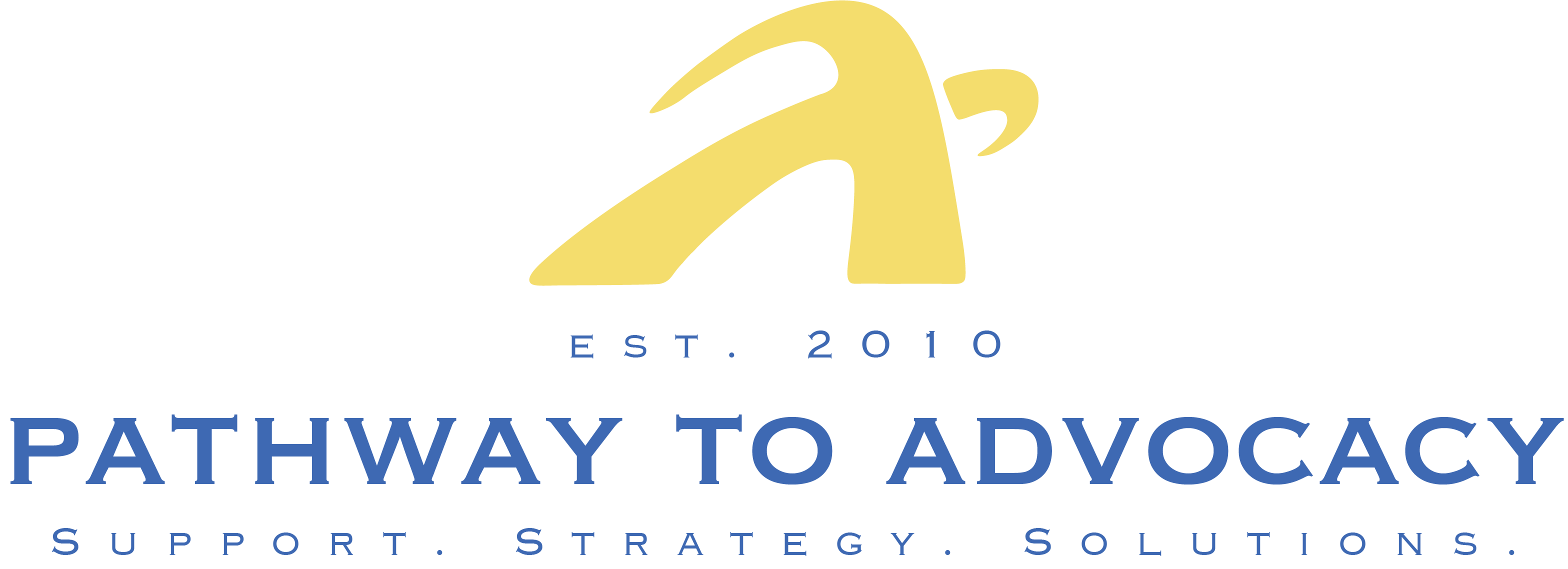You sit at the IEP meeting table, your heart pounding and a knot in your stomach. In front of you is a stack of reports filled with numbers, teacher notes, and words that feel far too clinical to describe your bright, struggling child.
If you’ve ever felt overwhelmed trying to secure the right support for your child with special needs – wondering if you’re asking the right questions, pushing too hard (or not hard enough), or just hoping the school would just see your child the way you do – you’re not alone.
You Are Your Child’s Best Advocate – Here’s How to Feel Confidence in That Role
Special education advocacy can feel like learning a whole new language while navigating an emotional roller coaster. But here’s what I want you to know: You are not powerless. The good news is that you have more power than you think. You are your child’s most important advocate, and with the right knowledge, tools and strategies, you can make sure they get the support they need and deserve.
Let’s walk through a real-life scenario and explore step-by-step actions you can take on your own path to advocacy.
One Parent’s Story: From Frustration to Empowerment
Meet Emily.
Emily’s 8 year old son, Jake, was struggling with reading. Every day, Jake came home in tears because he felt “different” from his classmates. Emily voiced her concerns at parent-teacher conferences only to hear phrases like:
“He just needs more time.”
or
“Let’s wait and see.”
But her gut told her differently. She knew Jake needed more and she was worried he was slipping though the cracks.
Determined, she started researching and digging for more information. That’s when she learned about her parental rights under the Individuals with Disabilities Education Act (IDEA). She learned she could request a free evaluation to see if Jake qualified for special education services.
The Individuals with Disabilities Education Act (IDEA) provides parents and children essential rights and legal protections in the special education process, ensuring access to appropriate education.
The evaluation confirmed what Emily had suspected: Jake had dyslexia – finally giving a name to the challenges they had faced.
At Jake’s first IEP meeting, Emily felt nervous. “What if I say the wrong thing?” A room full of professionals would be across from her – teachers, a school psychologist, administrators – discussing test scores and intervention plans. She felt her voice shaking when she spoke, but she reminded herself of the most important thing: no one knew Jake better than she did.
She had prepared for this meeting, written down her concerns and goals, and even brought her sister along for moral support. When the school suggested minimal support with once-a-week reading intervention, Emily respectfully and confidently referenced expert guidelines on dyslexia intervention and Jake’s legal right to a Free Appropriate Public Education (FAPE) through a program tailored to his needs. The result? Jake’s IEP included daily reading support with a research-based program, extra time on tests and progress monitoring.
A few month’s in, when progress was slow, instead of feeling defeated, Emily called another IEP meeting – because yes, parents can do that! She came prepared with data – she brought reading logs and test scores to back up her concerns and show Jake’s plan need adjustments. The team agreed and the school adjusted Jake’s plan, adding more intensive interventions and assistive technologies.
 Today, Jake is flourishing and even reads for fun. Emily looks at her son, curled up reading a book, and feels wave of gratitude that she spoke up. Her message to other parents: “Trust your instincts, learn your rights and never be afraid to advocate for your child. It can change their life.”
Today, Jake is flourishing and even reads for fun. Emily looks at her son, curled up reading a book, and feels wave of gratitude that she spoke up. Her message to other parents: “Trust your instincts, learn your rights and never be afraid to advocate for your child. It can change their life.”
Emily’s story is just one example of a parent transforming frustration into empowerment. Her journey shows that you too can navigate this maze and ensure your child gets the support they deserve.
And that’s what I want for you too.
Understanding Your Child’s Rights: IDEA, Section 504 & Why They Matter
One of the first steps in special education advocacy is understating the laws that protect your child. Knowing your rights gives you confidence to speak up, push back when necessary and ensure your child gets the education they deserve.
Let’s break it down in plain language.
There are two key laws you should know – IDEA and Section 504
1. The Individuals with Disabilities Education Act (IDEA)
- Guarantees a Free Appropriate Public Education (FAPE) for students with disabilities
- Requires schools to provide an Individualized Education Program (IEP) tailored to your child’s unique needs
- Gives parents the legal right to participate in decisions, request evaluations and dispute school recommendations
Why this matters: If you ever hear, ‘We don’t offer that service here,’ you can confidently respond, ‘Under IDEA, my child is entitled to an education that meets their individual needs.’ This simple statement can be a game-changer in IEP meetings.
2. Section 504 of the Rehabilitation Act
- A civil rights law that ensures students with disabilities receive equal access to education
- Covers students who may not qualify for an IEP but still need accommodations
- Prevents schools from denying access to programs or activities based on disability
Why this matters: If your child has ADHD, anxiety or another condition that impacts learning but doesn’t qualify for an IEP, a 504 Plan can provide accommodations to help them succeed.
How Do These Laws Help You Advocate?
Knowledge is power. When you understand what IDEA and Section 504 guarantee, you can confidently advocate for your child’s rights. These laws exist to ensure your child receives the proper education they deserve—and if a school fails to meet its obligations, built-in dispute resolution processes provide a legal backup. While we hope you never have to go that far, it’s reassuring to know those protections exist if things get tough. With the tools and tips on our site, like 5 Practical Advocacy Tips to Help You Speak With Confidence, you’ll gain the confidence to ask tough questions and fight for the support your child needs.
Always remember – the law is on your side as a parent of a child with a disability.




